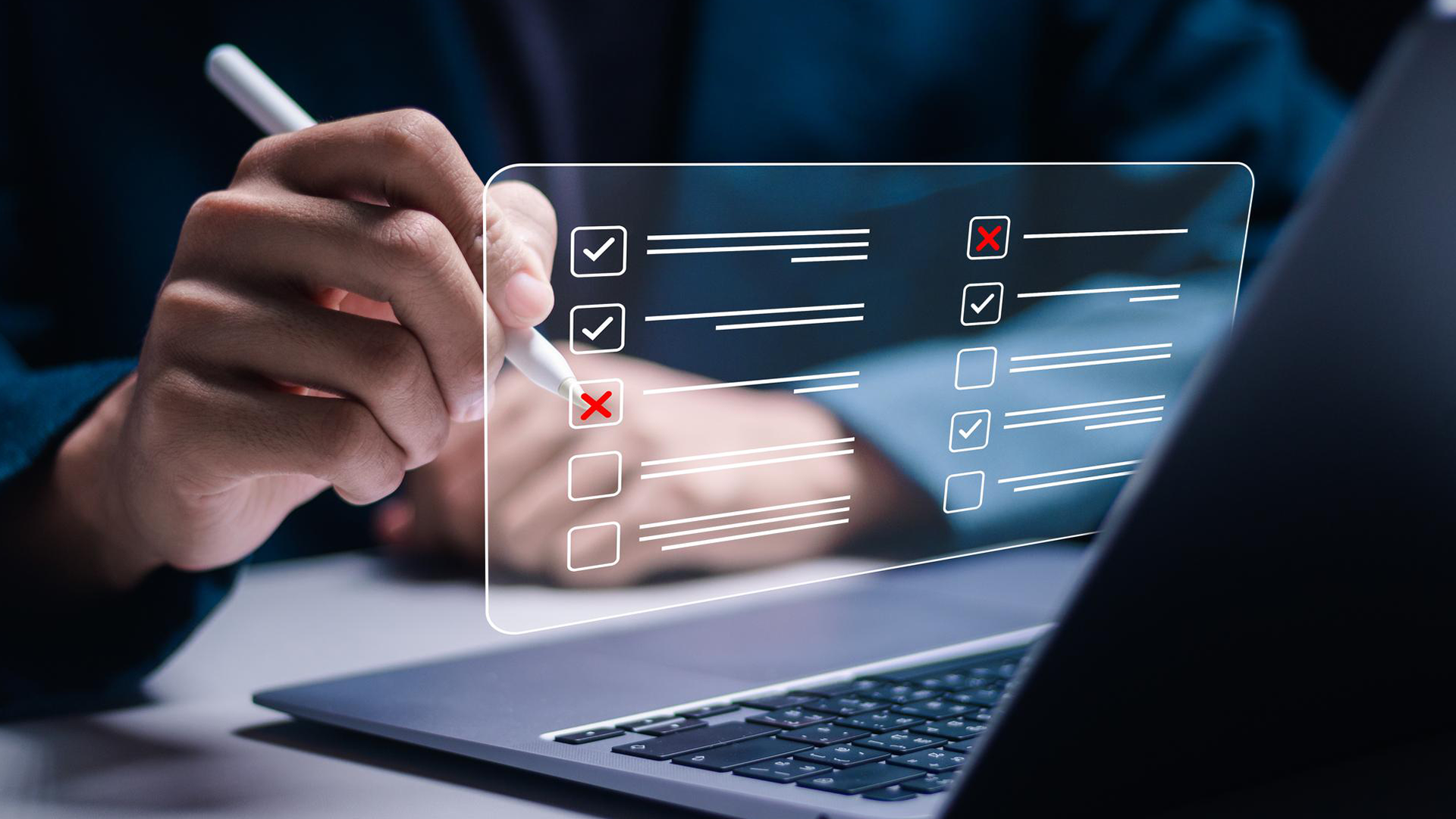
Thank you
Our team of industry domain experts combined with our guaranteed SLAs, our world class technology .


Get Immediate Help
In today’s digital-first world, mobile apps have become an integral part of our lives, from managing finances to shopping and healthcare. But as their adoption increases, so does their appeal to cybercriminals. Mobile app security is no longer optional—it’s essential to protect both businesses and users from escalating cyber threats.
This blog provides a comprehensive mobile app security checklist, highlights mobile app security risks, and shares actionable tips to safeguard applications from vulnerabilities. Whether you’re a developer, business owner, or security professional, this checklist will guide you in protecting your apps from becoming the next cyber target.

Mobile apps handle sensitive data, including personal, financial, and business-critical information. Cybercriminals exploit mobile app security threats to steal data, compromise user trust, and disrupt operations.
Malware: Infects devices through apps to steal data or track user activities.
Unsecured APIs: Exposes sensitive information to unauthorised users.
Inadequate Data Encryption: Leaves data vulnerable to interception.
App Cloning: Distributes fake apps to trick users into sharing credentials.
Insecure Code: Vulnerabilities in app code allow hackers to exploit loopholes.

1. Conduct App Vulnerability Assessments
Regularly test apps for application vulnerabilities.
Perform penetration testing to simulate real-world cyberattacks.
Address weaknesses before deployment to prevent exploitation.
2. Secure Mobile App Development
Follow secure coding practices to minimise vulnerabilities.
Use frameworks and tools that support secure app architecture.
Regularly update libraries and dependencies to avoid outdated code.
3. Implement Strong Authentication
Enforce multi-factor authentication (MFA) for user accounts.
Use OAuth 2.0 or OpenID Connect for secure user verification.
4. Encrypt Sensitive Data
Encrypt data at rest and in transit to protect against interception.
Use robust encryption protocols like AES-256 for maximum security.
5. Secure API Integrations
Validate API requests to ensure only authorised users access resources.
Monitor API activity to detect anomalies and potential breaches.
6. Use App Store Security Features
Publish apps only on trusted platforms like Google Play Store and Apple App Store.
Enable app signing to verify the authenticity of updates.
7. Monitor for Cyber Threats to Mobile Apps
Implement real-time cyber threat detection tools to identify and neutralise threats.
Analyse app usage patterns to detect unusual activity.
8. Protect Against Mobile App Fraud
Use fraud detection algorithms to identify suspicious transactions or activities.
Implement behavioural analysis to flag potentially fraudulent user behaviours.
9. Educate Users on App Security Best Practices
Encourage users to download apps only from trusted sources.
Educate them on recognising phishing attempts and malicious links.
10. Update Apps Regularly
Release updates to fix bugs and patch vulnerabilities.
Inform users about the importance of keeping their apps updated.

A cybersecurity risk assessment is crucial for identifying the specific threats your mobile app faces. By evaluating the app’s architecture, user interactions, and data flow, you can prioritise areas that need immediate attention.
Threat Modelling: Identifying potential attack vectors.
Data Flow Analysis: Understanding how sensitive data is processed and stored.
Vulnerability Identification: Pinpointing weaknesses in the app’s security.

1. App Wrapping for Security
Apply security layers to protect app data without altering functionality.
2. Runtime Application Self-Protection (RASP)
Integrate RASP tools to detect and block threats during runtime.
3. Secure User Permissions
Restrict access to sensitive features or data unless explicitly required by the app.
Significant financial penalties.
Reputational damage and loss of customer trust.
Operational disruptions during recovery.
Such incidents underscore the importance of proactive mobile app security measures.
Adopt Digital Security Solutions: Invest in tools that continuously monitor and protect your apps.
Collaborate with Security Experts: Leverage third-party expertise to identify and address vulnerabilities.
Integrate Cyber Threat Detection: Stay ahead of evolving threats by implementing advanced detection systems.
For organisations focused on mobile app security and addressing emerging cyber threats, the following Microminder Cybersecurity (CS) services will be instrumental:
1. Mobile Threat Defence (MTD) Solutions
How It Helps: Provides real-time protection against mobile-specific threats like malware, phishing, and malicious app activities.
Benefit: Shields mobile apps and devices from potential exploitation, ensuring continuous security for users and sensitive data.
2. App Security Assessment Services
How It Helps: Conducts thorough vulnerability assessments for mobile applications, identifying weaknesses before deployment.
Benefit: Prevents potential exploitation by patching vulnerabilities and ensuring a secure development lifecycle.
3. Penetration Testing Services
How It Helps: Simulates real-world attacks on mobile applications to evaluate their security resilience.
Benefit: Identifies vulnerabilities in app architecture, APIs, and endpoints, enabling proactive mitigation.
4. API Security Assessment Services
How It Helps: Focuses on securing APIs that interact with mobile applications, testing for vulnerabilities like unauthorised access and excessive data exposure.
Benefit: Ensures secure data flow between mobile apps and their back-end systems.
5. Threat Intelligence and Hunting Services
How It Helps: Provides actionable insights into emerging mobile app threats and proactively hunts for vulnerabilities in app environments.
Benefit: Strengthens defences against evolving threats and zero-day vulnerabilities.
6. Data Loss Prevention (DLP) Services
How It Helps: Monitors and prevents unauthorised data sharing from mobile apps, ensuring compliance with data protection laws.
Benefit: Protects sensitive information from accidental or malicious leakage.
7. Managed Detection and Response (MDR)
How It Helps: Offers 24/7 monitoring of mobile app environments for suspicious activities and cyber threats.
Benefit: Rapidly detects and mitigates threats, minimising downtime and operational disruption.
8. Security Architecture Review Services
How It Helps: Evaluates the security framework of mobile app infrastructure, including code, APIs, and cloud integrations.
Benefit: Ensures robust app security by identifying and addressing architectural weaknesses.
9. Incident Response Retainers
How It Helps: Provides immediate access to cybersecurity experts for containment and recovery in case of mobile app-related security incidents.
Benefit: Minimises damage, reduces downtime, and ensures business continuity during security breaches.
10. Compliance Gap Analysis
How It Helps: Assesses compliance with industry regulations like GDPR, HIPAA, and other data protection standards for mobile applications.
Benefit: Ensures regulatory adherence and builds user trust by protecting sensitive information.
By leveraging these Microminder CS services, organisations can fortify their mobile applications, protect sensitive user data, and ensure a secure digital experience in today’s evolving threat landscape.
Mobile apps are indispensable for businesses, but they are also prime targets for cybercriminals. By following this mobile app security checklist, you can significantly reduce risks, safeguard sensitive data, and ensure a secure user experience.
Don’t wait for a breach to act—start securing your mobile apps today. Protect your customers, reputation, and business with robust security measures.
Don’t Let Cyber Attacks Ruin Your Business
Call
UK: +44 (0)20 3336 7200
KSA: +966 1351 81844
UAE: +971 454 01252
Contents
To keep up with innovation in IT & OT security, subscribe to our newsletter
Recent Posts
Penetration Testing | 10/11/2025
Cloud Security | 07/11/2025
Cybersecurity | 06/11/2025
What is mobile app security?
Mobile app security refers to practices and technologies designed to protect mobile applications from cyber threats, ensuring the safety of user data and the app's functionality.Why is mobile app security important?
Mobile apps handle sensitive data like personal, financial, or business information. A breach can lead to data theft, financial losses, reputational damage, and compliance violations.What are the most common mobile app security risks?
Malware infections. Unsecured APIs. Weak authentication mechanisms. Lack of data encryption. App cloning and reverse engineering.What is a mobile threat defence solution?
Mobile Threat Defence (MTD) is a technology that protects mobile devices and applications from security threats like malware, phishing, and unsafe networks, ensuring secure operations.How can I secure a mobile app during development?
Follow secure coding practices. Use app vulnerability assessment tools. Encrypt sensitive data. Conduct regular penetration testing. Implement strong authentication and authorisation protocols.